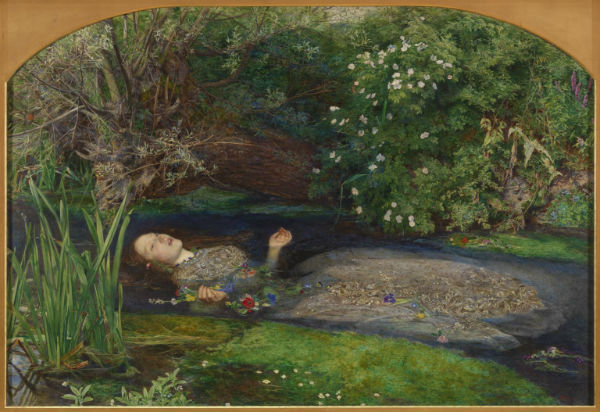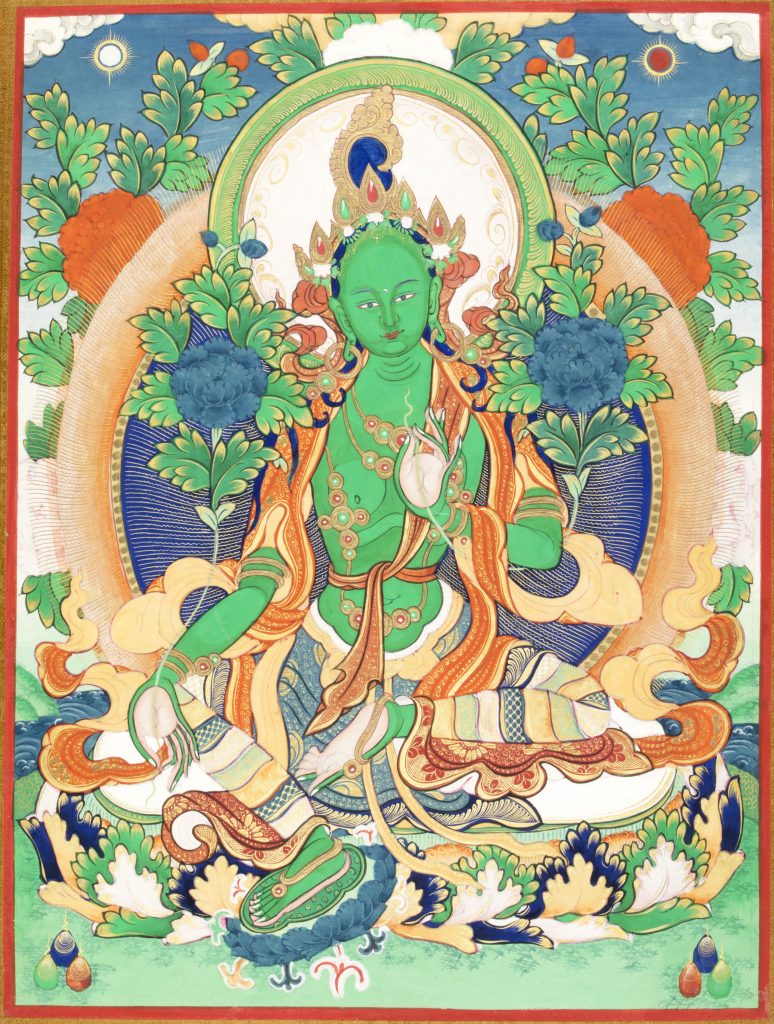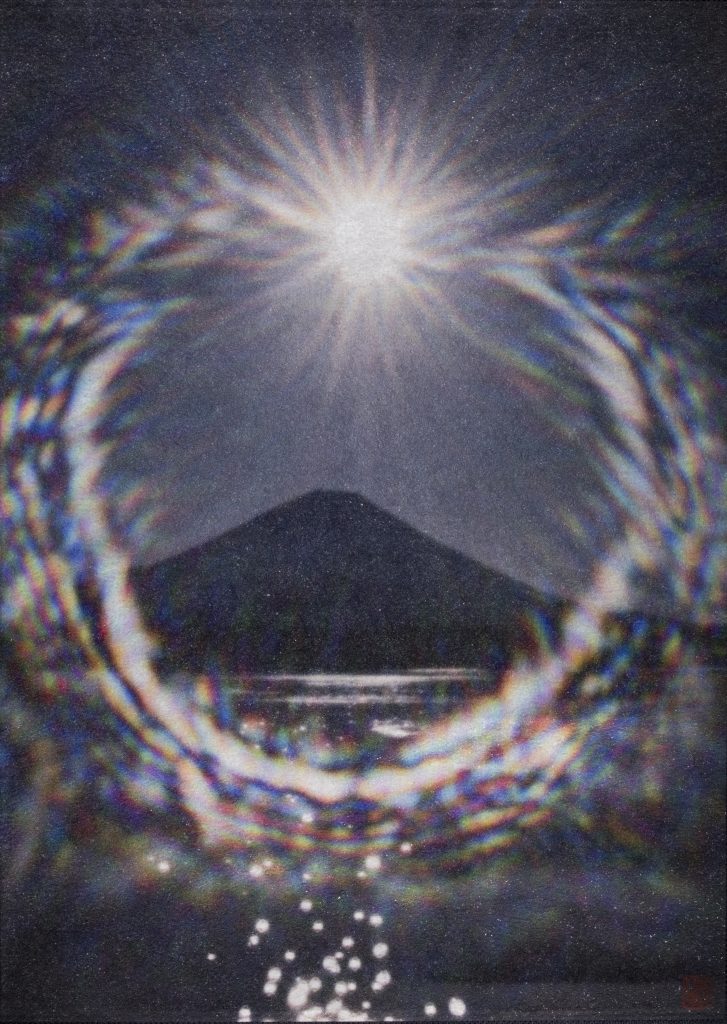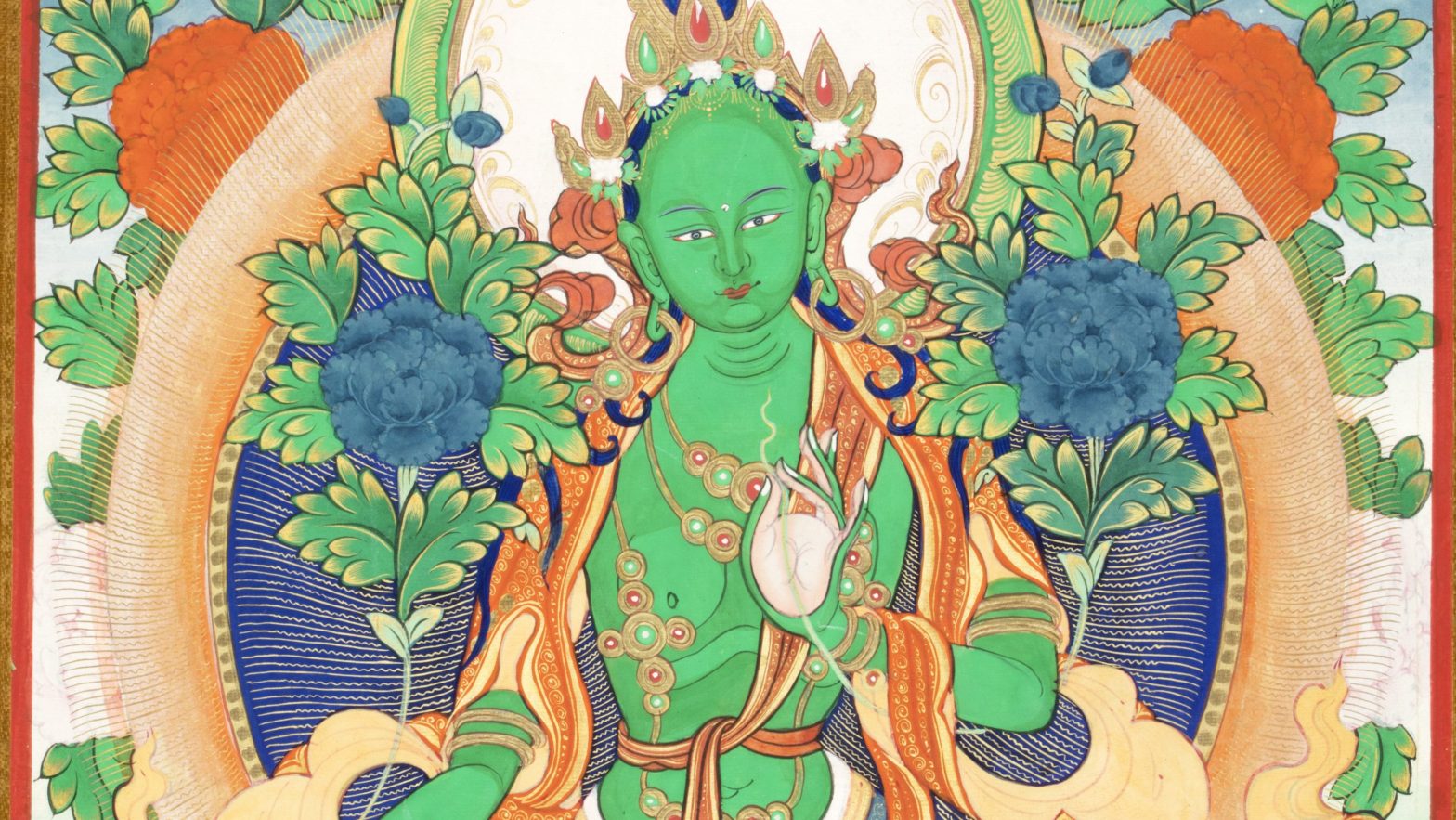Artists often take inspiration from each other’s work. Picasso’s painting Don Quixote, inspired by the literary character of the same name, may be more recognizable to viewers today than the story itself. The famous painting Ophelia by Sir John Everett Millais, depicting that character from Shakespeare’s Hamlet, almost seems to be part of the play. Elida Tessler’s installation Dubling, using 4311 verbs stamped onto corks and placed in 4311 bottles, takes inspiration from James Joyce’s novel Ulysses yet confronts it in interesting ways. You may see for yourself on the Art World blog.

Influence between words and images doesn’t just run one way. Poets have long been inspired by visual art. In fact, the relationship between poetry and visual art goes back to antiquity.
To the ancient Greeks, ekphrasis was the process of describing visual art through another art form, mostly poetry. The American Academy of Poetry claims that ekphrastic poetry now confronts, beholds, and interprets visual art more often than simply describing it. Like language itself, then, the dynamic act of ekphrasis is full of potential for experimentation.
Experiment is just what some of this semester’s creative writing students have done, exploring the edges and depth of ekphrastic poetry.
Early one morning, the Kruizenga Art Museum generously opened its doors before regular hours to host sixteen creative writers from English 253, Introductory Creative Writing, who went with the hope that art would beckon them to interpret, inhabit, confront, and speak to their subjects through ekphrastic poems. There was much beauty to behold from the permanent collection, as well as the two exhibits: “Capturing Light: The Art of Shin Sawano, a Tradition for the Future of Japan” and “Deities and Devotion in Mongolian Buddhist Art.”
Before long, each student stood transfixed before a piece of work, pacing, scribbling, glancing at the work from another angle, seemingly transported in the exchange.

The poems that follow are a sampling of that day’s work, no two alike, even though you’ll see that two students selected the same painting to write from. A few added a preface to their work, while others let the poems stand alone; all hope you’ll enjoy their creations. We’re also working on a podcast project called “Finding Our Common Humanity”—stay tuned for more on that.
And if you’d like to make some interesting creations of your own, know we’d be happy to see you in English 253 next semester!
From Gillian Skiba: “The painting Madame Cezanne by Grace Hartigan depicts the wife of artist Paul Cezanne amid splatters of paint to comment on the many women who are influential in the art world and do not receive credit. When I first saw it, I didn’t realize that there was a human figure under the splatters, and when I did see it, I thought that it was a man at first. Once I saw her, though, it felt like she was calling out to me. It felt like she wanted me to choose her painting and share her story, so I did.
“She Speaks” by Gillian Skiba
She speaks to me
a faint little whisper
so quiet I almost miss it.
From deep in the background
barely visible
covered by those who don’t want us to see.
She speaks to me
calling me forward
to search where most would ignore.
Is it actually a woman I hear?
The figure is hard to make out
distorted and hidden in shadow.
They wouldn’t want me to see her if it is.
They’d have put her there on purpose.
They don’t like us.
But it is a woman
and unyieldingly she reaches out
pushing, pushing, pushing.
The
dots
part.
Distance gives clarity.
After too long ignored, she stands tall
behind nothing, second to none.
She speaks to me.
She has no mouth with which to speak
but she speaks to me.
“I
am
Here.”
*
From Noel Vanderbilt: “The artist is Hendrik Willem Mesdag. His main focus was painting scenes near his home in the Hague. This piece, an oil painting titled Return from Fishing, shows a man riding into the waves to gather ropes from a fishing boat that will be used to haul the craft ashore.”
“Return from Fishing” by Noel Vanderbilt
In the Hague,
Grey clouds tremble
Across a wild sky
Pregnant with unknown.
Gulls dive and screech,
Swooping
Among herds of fishing boats
Straggling home.
Tattered sails whip in the rising wind.
Smooth prows slice the waves.
Figures crouch among the nets,
Flashing their silvery catches.
One vessel
Looms nearer
Where I watch,
Wheeling my father’s horse
Along the sandy beach.
A voice calls out across the troubled waters
Slipping through the salty air:
“Ay, ropes man!”
His voice stirs deep inside.
Bitter waves of recognition swirl
In my soul.
The impossible.
The smooth leather of the reins is taut
Within my clenched fingers.
Krijgen chomps, strains at the bit,
Prances, muscles rippling beneath his glossy coat,
Eager to plunge.
I tremble, wanting the distance of this shore,
Wanting to turn and flee,
But in a wild leap
Krijgen surges forward, drawn by the call, hooves pounding against the beach
Carrying me into the waves with a splash.
Icy water numbs my legs
And the numbness creeps higher, lacing its fingers around my chest,
Squeezing.
I cling tighter, dark mane and rein jumbled in my groping fingers.
Ahead, out of the sea looms the sail,
Tarnished, brown, weatherbeaten like my father’s face.
To me the face that lived only as a memory.
Numbness rises inside,
The ache of fear and pain
Mounting, throbbing in my ears
And on my cheeks and in my skin.
Bone-chilling water whirls over Krijgen, over me.
The man shouts again: “Krijgen!”
His voice probing like fingers reaching into lockboxes of yesterdays gone.
Krijgen snorts, swimming harder, faster, frenzied with excitement.
The numbness swells and bursts with pain to wild passion
Mijn vader!
But he doesn’t even see me.
*
A Sonnet on Hendrik Willem Mesdag’s “Return from Fishing” by Grace Alex
The rustic ships come to the gloomy Hague
I ride to meet them on my brown small horse
Wide brimmed boats finishing their course
The catch is here, lifting the tired fog
Waves of green and grey come tumbling in
The clouds of purple beckon them to begin
Unload their catch upon the murky coast
The red and yellow sails billow a toast
To health and wealth and all things Scheveningen
Beautiful beach, such wide and dark ye lie
My princess in these ships do die
The gorgeous fruit of my demise
O help me wind to carry out my endeavor
Help these ships to port in winter
To hold until the wind doth tide
The sailors pull their sails beside
Let the sweet Hague fill the space
Of this here painting, a picture of my face
*
From Ty Overhiser: “The name of the sculpture is Lords of the Cemetery. The artist is unknown, but it is a Mongolian work. As soon as I saw the piece, I could see them dancing and moving; there was something behind the eyes.”
Untitled by Ty Overhiser
Skeletons dance in the night
Prance through your cultural routine.
Bones of the dead, clack together
Echoing through the empty dark.
Could they be lovers rising from the dead
Or is the figure in blue the brother of the one in red?
Their slack jaws fall in a smile
Celebratory over the matters of death.
Empty rib cages, seemingly gutted.
Lined with red remnants, the hollow shell.
Not broken nor beaten the skeletons dance
‘Tis no dream or a joke. The dancers are alive.
The rattling I hear cannot be in my head,
nor the clubs in their hands, or stalks of grains,
or the perched-out knees, that stay firm.
No, it’s the lords of the cemetery,
The dancing of the dead.
*
From Andrew Gibson: “This piece is the one with all of the bees in it and has to do with colony collapse disorder, a condition that is killing off bees. I wrote this poem with the intention of making the reader think about bees but without outright stating that it was about bees.”
Buzz
A Buzz buzzes buzzingly
Black brightly buzzes and blinks
Yellow, is yellow
Yellow and black, black and yellow
Buzz buzz buzz
Buzz buzz buzz buzz buzz buzz buzz Buzz
Buzz
*
“Landscape With Cattle” by Katy Smith (inspired by the painting “Landscape with Cattle” by Jules Dupre)
as the storm rolls in, I feel
jumping, leaping
catapulting in my Heart.
The clouds scream, a battle cry of
lifting, a profession of support.
before the storm arrives, I lament
my body — raped, burned
branded and claimed.
Simply a possession of the Farmer,
a fearless man just looking to feed
his family.
once the storm comes, I will grab
Freedom, 50 white stars
for everyone — including me — and seize it as my own.
*
Want to see the images that inspired these poems? They’re hanging in the Kruizenga Art Museum (and entry is free…).



